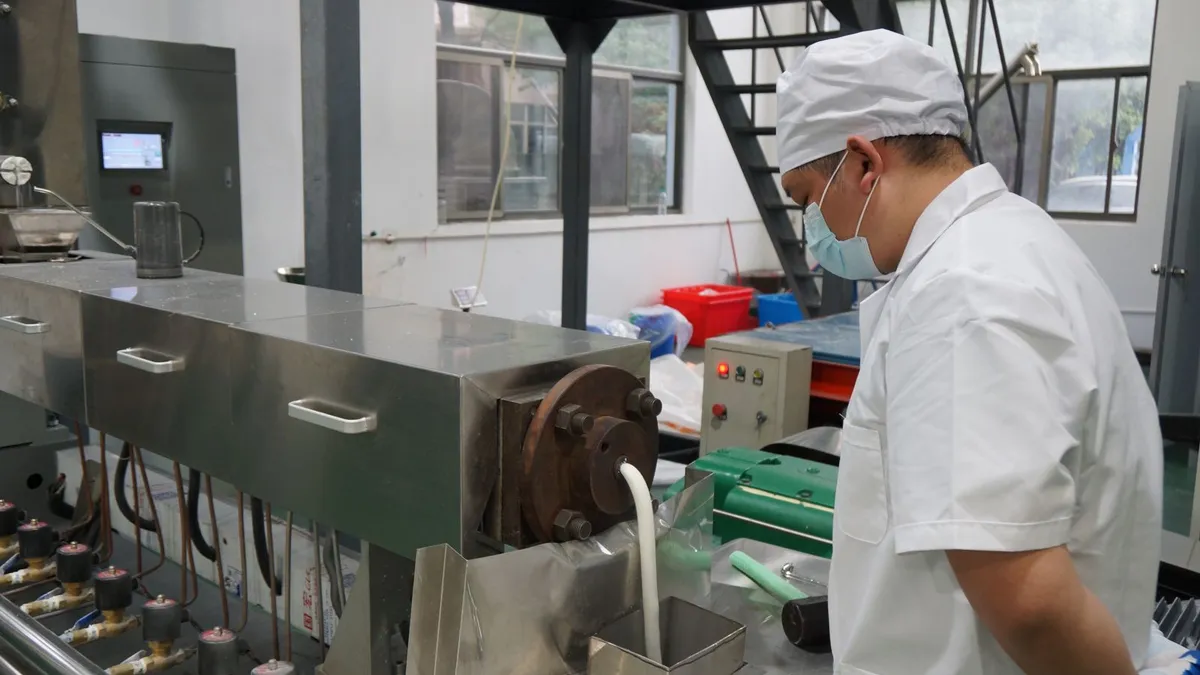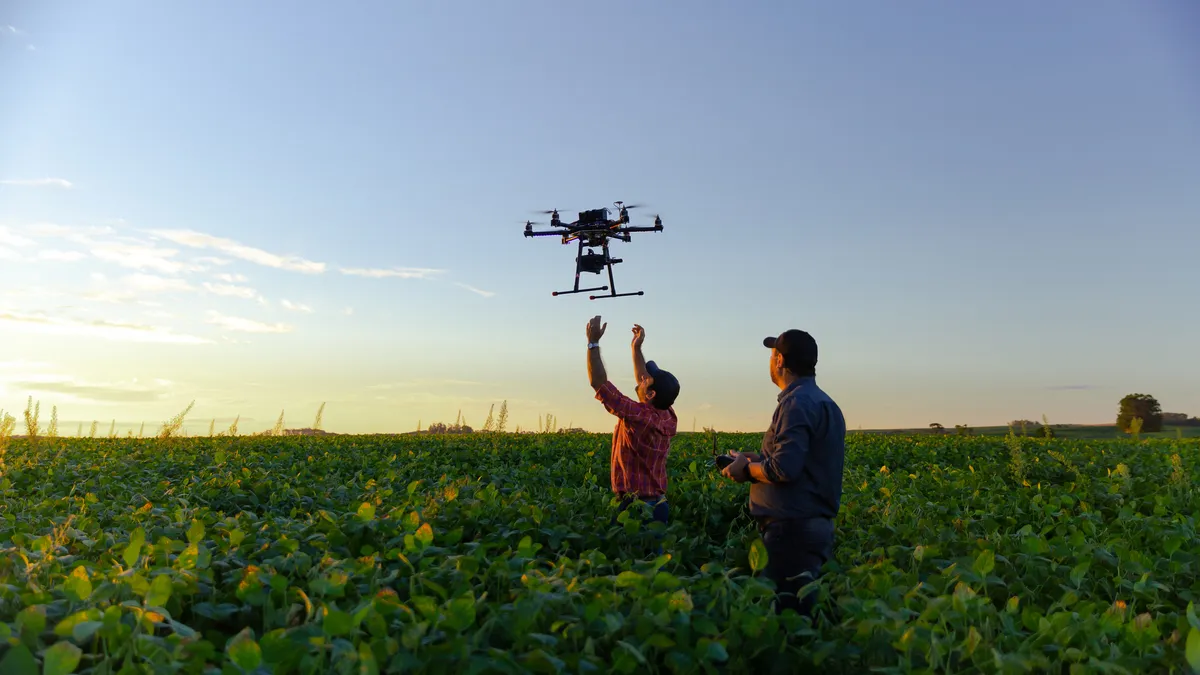Nvidia invests in laser-shooting weed killer
Seattle-based Carbon Robotics has received an investment from NVentures, the venture capital arm of gaming and computer graphics giant Nvidia, to scale production of a weed-killing device powered by artificial intelligence.
The startup has raised more than $80 million for its LaserWeeder robot since its founding in 2018. The robot, which weighs 10,000 pounds, uses imaging technology to target and eliminate weeds with lasers. Customers include Braga Fresh, which has used the robot to improve efficiency and bring down cost at produce farms. Details about Nvidia’s financial support were not disclosed.
“With this investment, and using the power of AI, we can help farmers create farms and food systems of the future that are more productive, efficient, healthy and profitable,” Paul Mikesell, CEO and founder of Carbon Robotics said in a statement.
— Nathan Owens
Startup nabs $26.5M for methane-reducing livestock vaccine
Agtech startup ArkeaBio raised $26.5 million to develop a "methane vaccine" with the goal of reducing global livestock emissions.
ArkeaBio's vaccine aims to tackle enteric methane emissions, or the methane associated with cow burps. These emissions, which occur as a natural byproduct of the digestive process, are estimated to make up around one-third of the world's methane output.
The vaccine is a cost-effective solution to tackle these emissions at scale, the startup said. It activates a cow's immune response, creating antibodies that neutralize methane-producing bacteria.
The fundraising round was led by current investor Breakthrough Energy Ventures, with investments from Rabo Ventures and the Grantham Foundation for the Protection of the Environment. The investment will help the company expand research and development of the vaccine, including large-scale field trials.
“Reducing methane emissions from the agricultural sector is one of the most pressing challenges in today’s fight against climate change,” said Chris Rivest, chairman of the board at ArkeaBio and partner at Breakthrough Energy Ventures. “ArkeaBio’s approach using innovative vaccine technologies will create effective and massively scalable solutions."
— Sarah Zimmerman
USDA, EPA and FDA to overhaul biotechnology regulation
The Agriculture Department has developed a plan with the Environmental Protection Agency and the Food and Drug Administration to revamp their regulations and oversight processes for biotechnology products.
The effort is in response to an executive order from the Biden administration that aims to accelerate biotech innovation in agriculture and other sectors by streamlining the regulatory process.
As part of the plan, the EPA, FDA and USDA have identified five target areas of focus and intend to implement a number of efforts to make the registration process simpler for developers of genetically engineered plants, animals and microorganisms.
They also plan to conduct a pilot project to determine the feasibility and costs of creating a web-based tool that developers can use to see which agency may regulate a given product category.
A coordinated governmental framework for biotechnology regulation was created in 1986, and was most recently updated in 2017.
— Nathan Owens
Syngenta fungicide on track to hit $1B milestone as more countries gain access
The crop protection giant has expanded market access of its patented Adepidyn technology to more than 55 countries, fueling unprecedented sales growth for the fungicide.
Following the brand’s recent registration in Great Britain, Syngenta Group is on track to generate $1 billion in annual sales from products containing Adepidyn, which the company said marks the first time its active ingredient has achieved this milestone in only eight years.
“ADEPIDYN technology is a game-changer for modern agriculture and enables farmers to grow crops more sustainably,” Ioana Tudor, global head of marketing at Syngenta Crop Protection, said in a statement. “It represents a significant milestone in our efforts to secure high yields and low impact to the planet and is exciting because of its high levels of consistency and effectiveness.”
Around the world, farmers lose an estimated 10% - 23% of their crops to fungal diseases each year, according to Syngenta. Adepidyn fungicides are used on dozens of crops to tackle diseases like fusarium head blight in wheat and net blotch in barley.
The active ingredient for these products is pydiflumetofen, recently developed and used by Syngenta in 2016 under the brand name Miravis. The chemical is highly toxic to fish, plants and larval honey bees, but is classified as “not likely to be carcinogenic to humans,” according to a report from the Minnesota Department of Agriculture.
— Nathan Owens


















